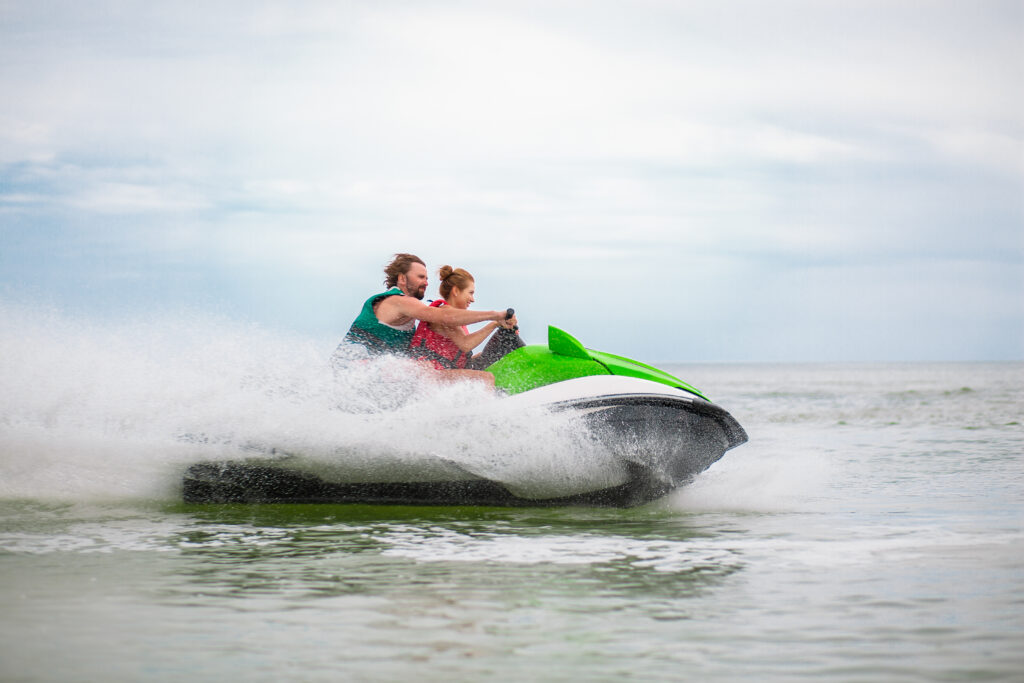
Water sports are a great way to stay fit all year round. Arguably, however, they really come into their own in summer. You get the benefit of exercising outdoors (in the fresh air) while also staying fairly cool. Water sports are also, quite simply, great fun. This means that they can tempt people who otherwise wouldn’t engage in fitness (at least not in the heat of summer).
To help you get started, Spring Lakes, a water sports and leisure centre in Nottinghamshire share their insight into the many exciting ways you can keep fit this summer, without even trying!
The Physical Benefits of Water Sports
Water sports offer a multitude of physical benefits, providing a comprehensive workout that engages the entire body. Activities such as swimming, water aerobics and paddleboarding target various muscle groups, contributing to improved strength, endurance and cardiovascular fitness.
This means that engaging in water sports can significantly contribute to weight management. They offer an effective calorie-burning workout that can aid in weight loss and maintenance. Swimming, for example, is a highly efficient calorie burner, with the ability to burn a significant number of calories per hour. Regular participation in water sports, coupled with a balanced diet, can help individuals achieve their weight-related goals.
Water sports are also both non-contact and super-low-impact. This is because the buoyancy of water supports the body and, hence, reduces the strain on joints. Water sports are therefore suitable for a broader range of people than many land-based activities. For example, they are often safe for individuals with joint issues or those recovering from injuries.
The Mental Health Benefits of Water Sports
Engaging in water sports has been shown to enhance mood and mental clarity. The release of endorphins during physical activity triggers a positive emotional response, leading to feelings of happiness and overall well-being. The rhythmic nature of swimming or the flow of paddling through the water can have a meditative effect, promoting mental focus, concentration and improved cognitive function.
Furthermore, water sports can be either individual or social. In fact, many can be both. This means that participants can tailor their activities to suit their mood at any given time. For example, if a person just needs a bit of quiet “me time”, they can exercise alone. By contrast, if they want social bonds then these are usually easy to find.
Most places that support water sports have local groups that are always open to new members. They may help members to compete but are usually quite happy if you just want to enjoy the sport recreationally. There are also plenty of online spaces to engage with people who share the same interest.
Choosing the Right Water Sport for You
The fact that there is such a huge range of water sports means that it’s practically guaranteed that there will be at least one option that’s suitable for you. Here are the three main options you should consider when making your choice.
Access to Facilities and Equipment
Before you decide what, you want to try, look at what you can try. When assessing this, be really honest about how much time, energy and money you have to spare. If you want a convenient and low-cost option, then swimming and/or water aerobics could be for you. They are available in swimming pools all year round and outdoors in summer.
The cost of outdoor water sports depends greatly on where you live and how serious you are. As a beginner, you may be able to use inflatable equipment for some water sports (e.g., paddleboarding, canoeing and surfing. If you want to go further, however, you will almost certainly need rigid equipment. This costs more and needs more space to store.
Fitness Level and Goals
Swimming is easily the most accessible water sport, followed by water aerobics. Even so, these will deliver cardio, muscle strength and endurance. This means they are suitable for all levels, including advanced. Most other water sports require a far higher level of strength, balance and/or flexibility.
Personal Preferences and Interests
Once you’ve covered the practicalities, be guided by your instinct. Quite simply, what looks interesting to you?
Getting Started in Water Sports
Safety is key in water sports. This means understanding general water safety plus the safety considerations specific to the water sport you choose. Generally, this will require you to learn the proper technique(s) for the activity. It’s therefore highly advisable to start by taking lessons. Once you are proficient, you can exercise on your own.